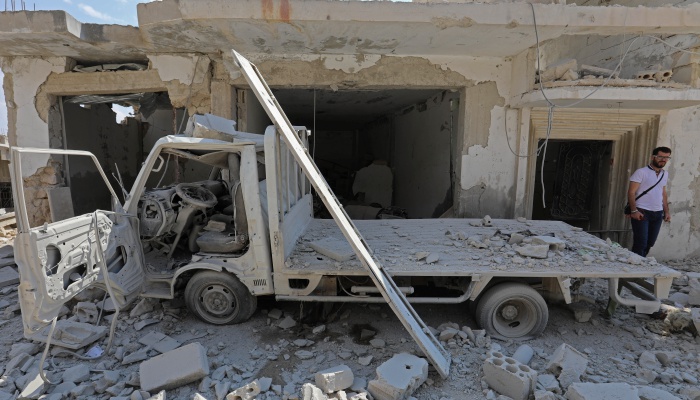Turkey will send more troops into Syria’s Idlib province after striking a deal with Russia that has averted a government offensive and delighted rebels who say it keeps the area out of President Bashar al-Assad’s hands, Reuters reported.
The deal unveiled by Russian President Vladimir Putin, Assad’s most powerful ally, and Turkish President Tayyip Erdoğan on Monday will create a new demilitarized zone from which “radical” rebels must withdraw by the middle of next month.
Damascus also welcomed the agreement but vowed to continue its efforts to recover “every inch” of Syria. Iran, Assad’s other main ally, said “responsible diplomacy” had averted a war in Idlib “with a firm commitment to fight extremist terror.”
The agreement has put a halt to a threatened Syrian government offensive. The United Nations had warned such an attack would create a humanitarian catastrophe in the Idlib region, home to about 3 million people.
The Idlib region and adjoining territory north of Aleppo represents the opposition’s last big foothold in Syria. Assad has recovered most of the areas once held by the rebels, with decisive military support from Iran and Russia. But his plans to recover the northwest have been complicated by Turkey’s role on the ground: It has soldiers at 12 locations in Idlib and supplies weapons to some of the rebels.
Erdoğan had feared another exodus of refugees to join the 3.5 million already in Turkey and warned against any attack.
In striking the deal, Russia appears — at least for now — to have put its ties with Turkey ahead of advancing the goal of bringing all Syria back under Assad’s rule.
Analysts cautioned that implementation of the deal faced big challenges, notably how to separate jihadists from other rebels — a goal Ankara has been struggling to achieve for some time.
Turkish Foreign Minister Mevlüt Çavuşoğlu said the “moderate opposition” would keep its weapons and the “region will be cleared of radicals,” Turkey would “make additional troop deployments” and its 12 observation posts would remain.
The deal was “very important for the political resolution in Syria.”
“If this [Idlib] had been lost, too, there would be no opposition anymore,” he said..
“I see it as a test of the extent of Turkey’s ability to implement this decision,” Ali Abdul Karim, Syria’s ambassador to Lebanon, said in an interview with Lebanon’s al-Jadeed TV. “We do not trust Turkey … but it’s useful for Turkey to be able to carry out this fight to rid these groups from their weapons.”
Moscow said the deal “confirmed the ability of both Moscow and Ankara to compromise … in the interests of the ultimate goal of a Syrian settlement by political and diplomatic means.”
The demilitarized zone will be monitored by Russian and Turkish forces, the countries’ leaders said.
But neither Russia nor Turkey have explained how they plan to differentiate “radically minded” rebels from other anti-Assad groups. It was also not immediately clear how much of the city of Idlib fell within the zone.
Sinan Ülgen, a former Turkish diplomat and analyst at Carnegie Europe, said it was unclear how Turkey and Russia would be able to separate radical fighters from other rebels.
The hope is that Syrians “will be more inclined to be part of a demilitarization effort” while foreign fighters “have nowhere to go,” he said.
While it is premature to call the agreement a triumph for Turkey, he said “it does give Turkey more room to implement this more peaceful vision on the ground and pre-empt an attack on Idlib that could have major and disastrous effects on Turkey.”
Earlier this month, Putin publicly rebuffed a proposal from Erdoğan for a truce when the two met along with Iran’s president at a summit in Tehran.
Iran also welcomed the agreement.
